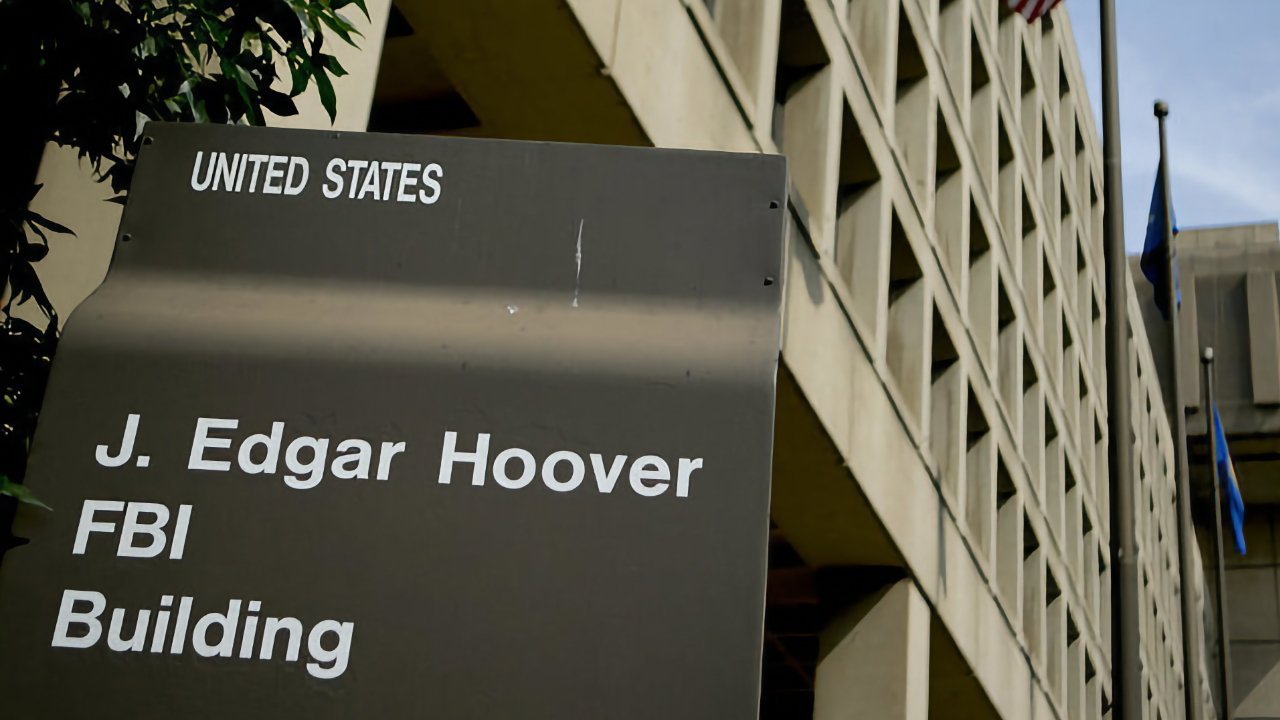Trump demanding that Apple must unlock shooter's iPhones because of foreign apps
Republican Presidential candidate Trump has called for Apple to help the FBI unlock iPhones and "foreign apps" belonging to people accused of plotting to assassinate him.

FBI headquarters
As predicted by AppleInsider back in July 2024, former President Trump has weighed in on the long-standing disagreement between Apple and the FBI. Repeatedly, the FBI will call for backdoors to be added to iOS to allow law enforcement access, and Apple will point out that this makes a back door for bad actors too.
Now according to Fortune magazine, Republican presidential nominee Trump has said that Apple has to help the FBI. Trump said that the FBI had been unable to unlock "three potentially foreign-based apps" on the iPhone belonging to Thomas Matthew Crooks, who was behind the shooting in Pennsylvania.
The fact that it is specifically three "foreign-based apps" that the FBI can't access, suggests that the agency has otherwise unlocked the iPhone. Conceivably, the apps store data in their own servers instead of iCloud and this is why the FBI can't get further.
Apple has previously handed over information stored in its iCloud servers to authorities. Based on existing statements made by the FBI and the Secret Service, this appears to have already happened.
But, if an app's developer stores the user's data on an external server, Apple physically cannot access it nor does it have the access to go get it.
Trump also said that the reportedly would-be assassin Ryan Wesley Routh had six cellphones. These are presumably but not definitely iPhones, which the FBI had "likewise been unable to penetrate."
"They [the FBI] must get Apple to open the foreign apps," said Trump at a rally in North Carolina, "and they must get Apple to likewise open the six phones from the second lunatic."
The speech also follows the presidential nominee being briefed by US intelligence services over a report that Iran was attempting to have him assassinated. There is no connection that has been made public between Iran and the previous incidents.
"If I were the president,' he continued, "I would inform the threatening country, in this case, Iran, that if you do anything to harm this person, we are going to blow your largest cities and the country itself to smithereens."
Apple's refusal to open up the iPhone to law enforcement was chiefly first highlighted when the firm denied a request over the Pensacola shooters in 2020. Since then, Apple has continually defended what it says is its users' right to privacy, and the FBI has carried on attempting to hack into iPhones anyway.
Read on AppleInsider

Comments
But then there are a lot of things he doesn’t understand
Except this safe is inside a different house in another country where law enforcement has no jurisdiction.
A better analogy would be that a bank safe have TWO locks on the door, one lock requires the bank to have the key and the other lock requires the customer's key. If you unlock one of them, it still won't open. Both locks have to be unlocked in order for the safe door to be opened.
So, if a customer doesn't have the key, the bank cannot unlock it.
For the old man to suggest Apple needs to hand over a key they don’t have is just another in a long line of stupid things he’s said, and one of his least egregious, TBH.
https://en.wikipedia.org/wiki/Apple–FBI_encryption_dispute
Also, the FBI screwed up the ability to get the phone to do a final iCloud backup, which would have resulted in the most recent content of the phone being available to law enforcement without cracking the phone.